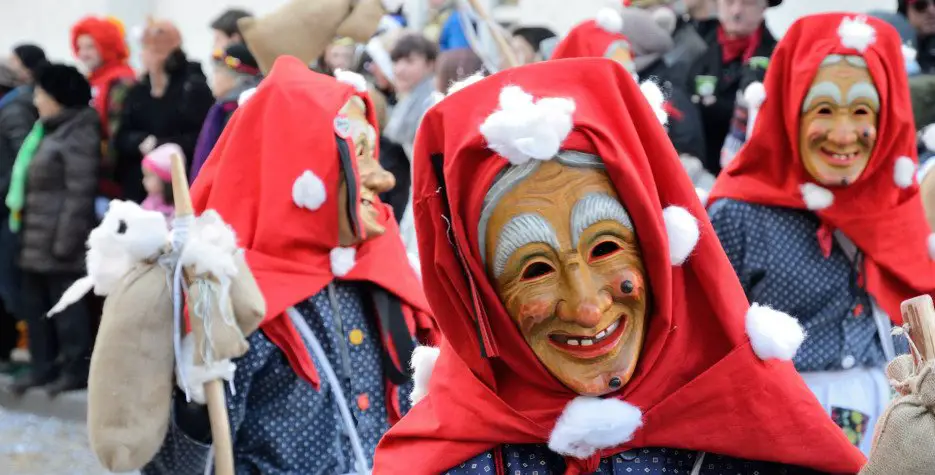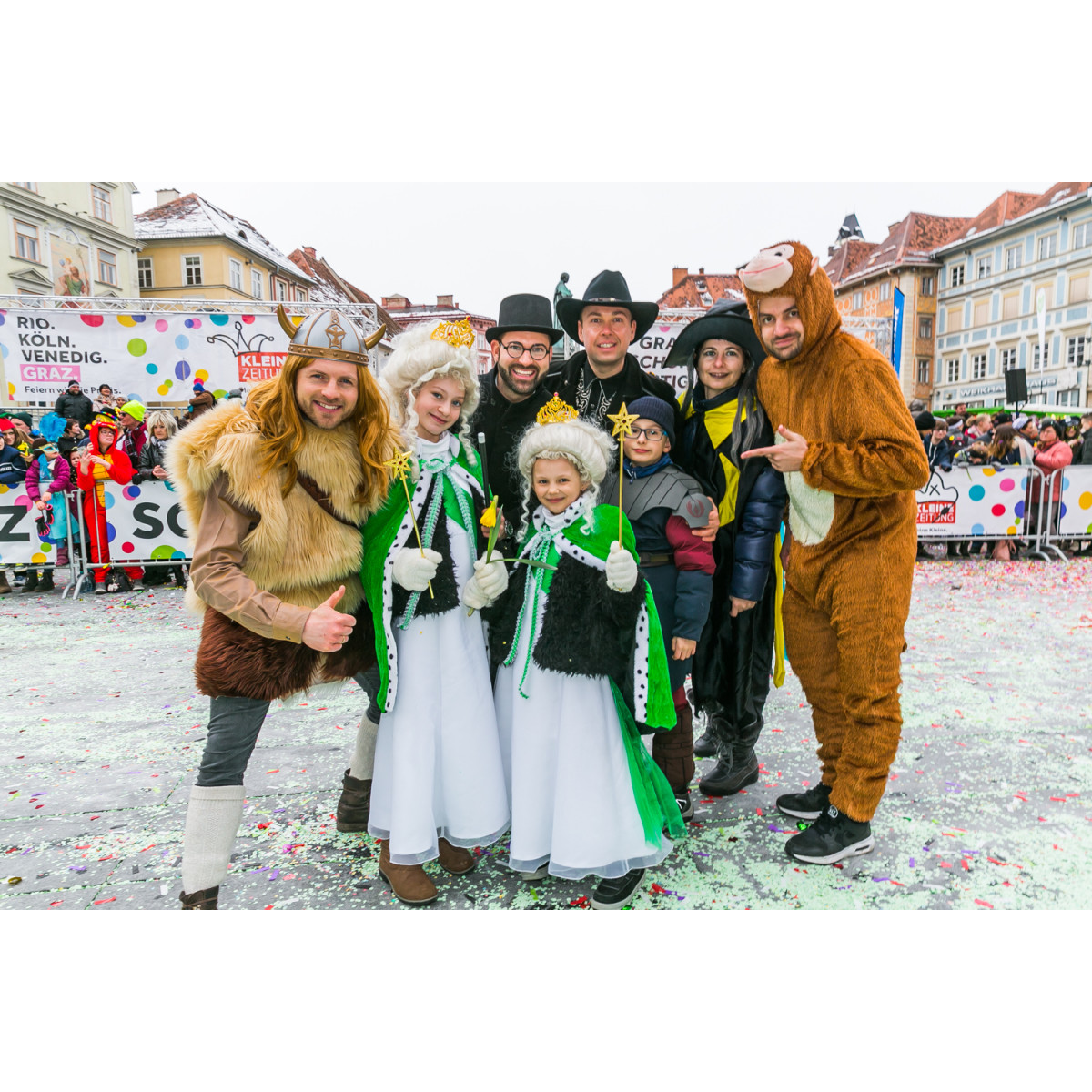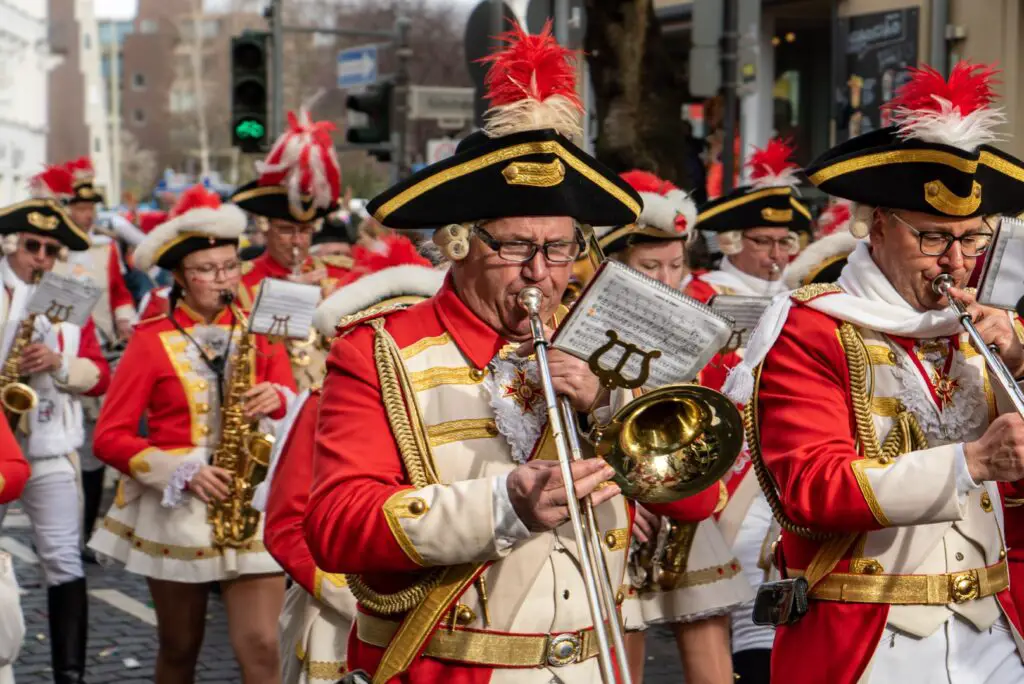Fasching is a time of celebration and joy – a time to break the laws, mock those who set them, and then make your own new ones. The custom may be traced back to medieval periods in Germany, notably in the Rhineland region, when many countries were subject to strict regulations.

Large carnivals are held in certain German cities on the Fat Thursday, Monday, and Fat Tuesday preceding Ash Wednesday. Fastnacht is celebrated in southern Germany, Fasching across Bavaria & Austria, as well as Karneval with in Rhineland.
Though not officially declared public holidays, the festivities in towns with prominent carnivals, such as Cologne, Frankfurt, and Munich, may disrupt normal business operations.
Fasching’s History:

Carnival season, which occurs before Lent, is characterized by parades, lavish costumes, masked balls, and street celebrations, culminating on Shrove Tuesday.
Fasching may be dated back to the pagan era. It originated as an event to drive out the winter and the spirits of darkness who had lost significant their powers as the sun began to rise in the springtime.
Rituals in these locations involve processions in which people make a lot of noise and disguise themselves with scary face masks in attempt to scare away the ghosts of winter while avoiding their vengeance.
It was also a celebration to honor the Goddess Freya and to celebrate fecundity when spring arrived.
Early missionaries sought to transform the meaning of this celebration to a more Christian one, and thus the Carnival came to mark the beginning of Lent – a season of reflection and fasting that lasts until Easter, throughout which people refrain from eating meat, poultry, or dairy.
The days leading up to Lent would be the final chance to eat these delicacies for forty days, making them ideal for gatherings and feasts.
Many people are perplexed as to why monks, of all people, were permitted to consume such powerful beer during their fasts. According to mythology, they first brought the beer over the Alps to faraway Rome in order to persuade the “Holy Father” of its fasting appropriateness.
However, by the time they got to the Pope, the wine had gone sour and was no longer drinkable. As a result, the Pope had no reservations about allowing the monks to consume beer as liquid nutrition during Lent.
When is Fasching 2022?

Carnival refers to the large festival held before to the start of Christian Lent. Carnival and Fastnacht are synonyms. The carnival season’s start date is determined by the location of Easter. Fastnachts-woche is the height of carnival. The festival represents a variety of rituals associated with the period preceding Ash Wednesday, which is widely observed, particularly in Catholic communities.
Also check: Labor day 2022
List of all carnival holidays:
The public holidays begin on February 24th with Women’s Carnival and end on March 1st with Carnival. Shrove Monday is February 28th, while Ash Wednesday (March 2nd) marks the beginning of Lent and the end of the festivities.
From today until Easter, one should fast for 40 days. Man will celebrate before the end of this lengthy Lent! Carnival 2022 will take place in Germany from Thursday, February 24th, 2022 to Wednesday, March 2nd, 2022.
- The following are the most prominent public holiday days in 2022 around the carnival festival:
- Women’s Carnival is scheduled for Thursday, February 24, 2022.
- Monday, February 28th, 2022: Shrove Monday
- Mardi Gras will take place on Tuesday, March 1st, 2022.
- Wednesday, March 2, 2022: Ash Wednesday
Check Whyd for more news.